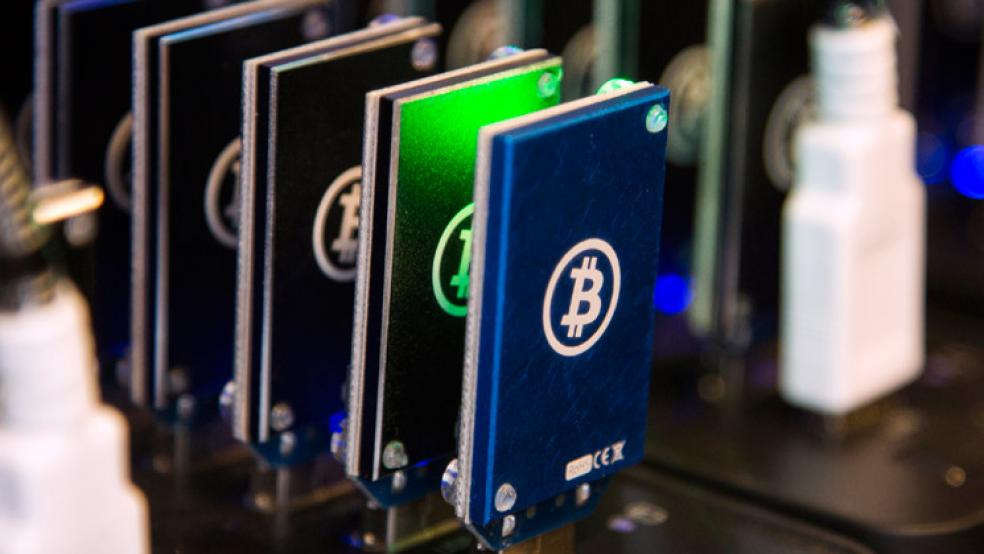With Apple Pay, the tech juggernaut has begun its assault on antiquated payment networks. The launch could not have come at a better time, as consumers have been inundated with security breaches and are likely ready to make a change.
The concept of a "tokenization" or a one-time card number that does not transmit personal data is a similar concept to the Bitcoin blockchain. Certainly technology purists will argue that the blockchain technology at the heart of Bitcoin is superior, but to the consumer, the difference is indistinguishable.
Related: Naked and Hacked: Why the iCloud Breach Is Bigger Than Apple
Even if the consumer demands a superior technology, Apple's ability to partner with Visa, MasterCard and American Express in addition to retailers like McDonalds, Whole Foods and Disney provides a formidable barrier to entry. Moreover, Apple can crowdsource the next "killer app" with its development ecosystem. But does this mean Bitcoin is dead?
No.
The Apple ecosystem is a closed system that does a tremendous job at retaining customers but leaves it vulnerable to the innovation of open source projects. This is a flaw that Google's Android has exploited brilliantly and profitably. In addition, Apple's plan to layer another fee on top of an already expensive payment network is an opportunity for digital currencies. Offering a product that is open source and virtually free is how Android became the top mobile operating system in the world. Digital currencies should borrow from Google's playbook in order to compete with Apple.
The open-source nature of digital currencies gives them a major competitive edge as the best technology can be immediately integrated without the need to navigate a corporate culture. This gives digital currencies a first mover advantage as consumers begin to embrace a digital payment network. Android was able to gain market share by offering apps that Apple had yet to approve and therefore opened itself to the early adoption of game changing tech.
Related: More Proof That Bitcoin Is on a Roll
Probably Apple's biggest competitive advantage is its proven ability to change consumer behavior. Before iTunes, consumers where quite content buying an entire album, while sharing single songs was in the realm of a few technology enthusiasts using a thing called Napster. As one of the first successful peer-to-peer technologies, Napster had the potential to change the world of music but it lacked the resources to engage the industry in battle. Apple recognized the revolutionary potential of Napster and designed a system that was easy for the non-tech savvy user. Moreover, it was able to use its considerable resources to convince the music industry to embrace the inevitable change. The technology giant appears to employing a similar strategy with Apple Pay.
The explosion of interest in Bitcoin has shown that consumers are open to changing behavior as related to payment systems. The idea of a peer-to-peer network that provides a secure method to exchange value has been enthusiastically embraced by the tech community and a few financial pseudo-nerds like me. The promise of Apple Pay for the digital currency community is that Apple has designed a user friendly way to pay for items digitally. Apple Pay has the potential to change the decade old habit of reaching for a plastic card encased in a leather wallet in order to digitally transmit financial information.
This behavior change should be embraced by the digital-currency community.
Related: Silicon Valley Conspiracy: When Apple and Google Get Together, Watch Out
Once consumers break the need for a tactile payment method, it will be easier to accept new methods of exchange. When consumers realize how easy it is to pay digitally they will begin to ask for a cheaper way to do so. Apple Pay introduces the consumer to the idea of tokenization and once comfortable, the consumer will likely demand more, more, more. This is the opportunity that digital currencies must embrace. Napster led to iTunes which changed the way we all buy music; Bitcoin has led to Apple Pay which will change the way we all buy "things."
The announcement of a mobile-payment system by Apple was an evolutionary step. The infrastructure it runs on is old technology linked to a centralized financial system. Tokenization is a time-tested encryption method of "one-time use-card numbers" that has been used prior to Apple Pay. However, Apple's ability to put a user-friendly face on existing technology should not be underestimated. The decentralized Bitcoin network is more efficient, cheaper and secure than Apple Pay and eventually should be embraced by the consumer. However, just like digital music needed the evolutionary step from Napster to iTunes, so, too, do digital currencies need this move by Apple.
This article originally appeared in CNBC.
Read more at CNBC:




